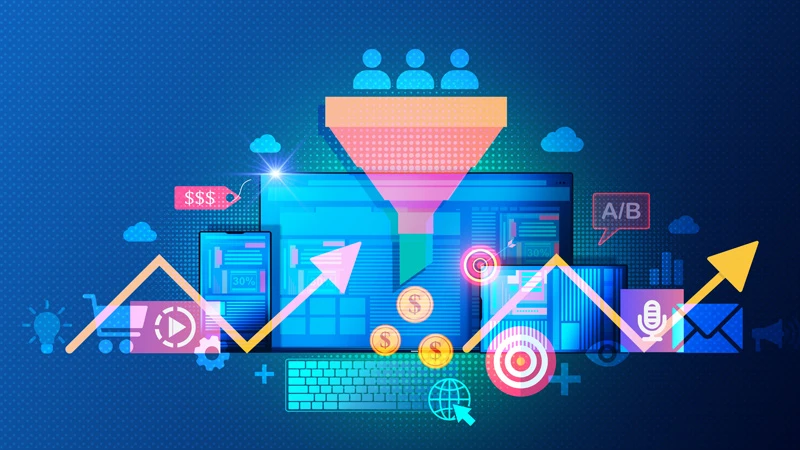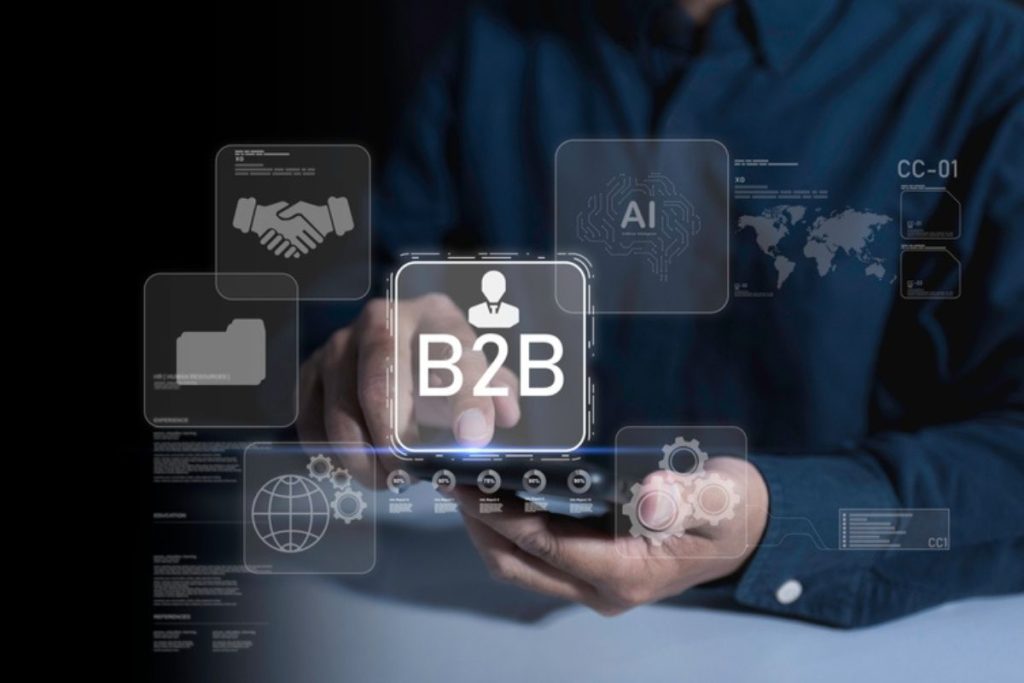Open Performance and Growth With AI Automation for B2B Business
AI automation is changing the landscape for B2B business. It enhances procedures and minimizes reliance on human intervention. This shift allows services to make quicker, data-driven decisions. As companies explore which refines to automate, they have to additionally take into consideration the right devices to execute. Nevertheless, obstacles continue to be in adopting AI modern technology. Minarik AI. The effects of these modifications could shape the future of lots of firms in ways yet to be fully recognized
Understanding AI Automation in the B2B Context
As organizations significantly seek performance, understanding AI automation in the B2B context becomes vital. AI automation entails employing innovative innovations to improve operations, decrease human treatment, and improve decision-making procedures. In the B2B landscape, this can show up in various types, such as automating client service interactions, taking care of supply chain logistics, or maximizing marketing campaigns. Companies can take advantage of AI to analyze large datasets rapidly, enabling them to determine trends and insights that educate strategic options. Additionally, AI systems can integrate flawlessly with existing innovations, supplying a cohesive platform for handling service features. This understanding lays the foundation for companies to check out how AI can transform their operations, enhance productivity, and eventually foster lasting development in a competitive market.
Key Benefits of Carrying Out AI Automation

Determining Processes Suitable for Automation

Choosing the Right AI Tools for Your Organization
When B2B companies consider automating their processes, picking the right AI devices comes to be important for achieving wanted outcomes. Firms should begin by reviewing their one-of-a-kind needs and goals, making certain positioning with business goals (Growth Systems For B2B). Reviewing the adaptability, scalability, and combination abilities of possible tools is important, as these elements figure out long-lasting effectiveness. Organizations ought to likewise take into consideration user-friendliness and the level of support supplied by vendors, as these aspects can influence effective application. In enhancement, examining customer testimonials and study can provide insights into how certain AI remedies perform in real-world situations. By diligently choosing AI devices that fit their operational requirements, B2B business can enhance effectiveness and drive growth while reducing potential interruptions
Conquering Challenges in AI Adoption
B2B business usually experience significant difficulties in adopting AI innovations, particularly concerns associated with data top quality and resistance to change administration. Poor information quality can hinder the effectiveness of AI systems, while staff member hesitation to welcome brand-new procedures can stall application initiatives - AI Automation For B2B. Resolving these difficulties is crucial for successful AI combination and optimizing its potential benefits
Data High Quality Issues
Assuring high information high quality is vital for the effective fostering of AI modern technologies in business-to-business settings. Imprecise, insufficient, or obsolete information can significantly impede AI initiatives, resulting in wrong insights and bad decision-making. Companies usually deal with challenges such as data silos, incongruities across various resources, and a lack of standard data styles. To conquer these problems, companies have to spend in information cleansing, assimilation, and administration procedures. Carrying out durable data monitoring practices guarantees that the info fed right into AI systems is pertinent and reputable. Moreover, promoting a society of data quality recognition among workers can improve data precision gradually. By dealing with data quality issues, B2B companies can release the complete possibility of AI automation, driving performance and development.
Change Monitoring Resistance

Gauging the Effect of AI Automation
Measuring the effect of AI automation in B2B firms requires a clear understanding of vital performance signs (KPIs) that line up with service objectives. Effective data analysis methods are necessary for translating the outcomes, while durable ROI evaluation strategies aid establish the monetary benefits of automation initiatives. With each other, these parts offer a considerable structure for assessing AI's contributions to business success.
Key Performance Indicators
Key performance signs (KPIs) serve as essential devices for B2B firms to evaluate the efficiency of AI automation initiatives. By developing clear metrics, companies can gauge improvements in functional performance, expense reduction, and earnings development directly attributable to automation. Typical KPIs include cycle time decrease, mistake prices, customer satisfaction scores, and employee productivity degrees. These indications offer understandings into just how AI systems are enhancing processes and enhancing overall performance. Additionally, tracking KPIs makes it possible for business to determine locations for additional renovation and to align AI automation initiatives with tactical business purposes. Inevitably, a well-defined structure of KPIs warranties that B2B business can quantitatively evaluate the influence of AI automation on their operations and drive continuous development.
Data Analysis Methods
Efficient data evaluation strategies play a crucial duty in reviewing the impact of AI automation within B2B firms. By making use of analytical techniques, organizations can determine trends and patterns in functional information, enabling them to examine the efficiency obtains attained through automation. Strategies such as regression analysis and time series projecting supply insights into exactly how AI-driven procedures affect productivity and decision-making. In addition, data visualization devices can effectively interact findings to stakeholders, facilitating notified tactical decisions. Machine discovering formulas can further improve evaluation by anticipating future outcomes based on historic data, offering actionable understandings. Eventually, these methods make it possible for B2B firms to measure success and optimize their AI automation campaigns, making certain positioning with company purposes and improving total efficiency.
ROI Evaluation Strategies
Assessing the return on financial investment (ROI) of AI automation is crucial for B2B firms seeking to comprehend the monetary implications of their technological initiatives. Business can utilize various ROI analysis strategies to evaluate the performance of AI executions - AI Automation For B2B. One reliable technique involves computing price financial savings by comparing functional costs prior to and after automation (Minarik AI). Additionally, determining productivity improvements through vital performance indications (KPIs) helps evaluate the benefits of AI. Client fulfillment metrics can likewise supply understandings into the effect of automation on solution top quality. To ensure a detailed assessment, business ought to consider both direct intangible benefits and economic returns, such as improved decision-making capacities and competitive advantage. This complex evaluation enables B2B companies to make informed decisions relating to future financial investments in AI modern technology
Future Trends in AI Automation for B2B Business
What innovations exist ahead for AI automation in B2B firms? Emerging trends indicate a substantial change in the direction of enhanced information analytics capabilities, allowing businesses to make even more enlightened decisions. Anticipating analytics will certainly come to be significantly necessary, permitting firms to expect market adjustments and client requirements. Furthermore, the assimilation of AI with Web of Points (IoT) innovation is anticipated to simplify procedures by giving real-time insights and automation of procedures. Companies will also concentrate on improving consumer experiences through customized advertising and marketing driven by AI algorithms. Improvements in all-natural language handling will assist in much better interaction in between organizations and clients. As these fads progress, B2B companies need to adjust to utilize AI automation effectively, ensuring continual growth and competitive advantage.
Regularly Asked Concerns
What Industries Advantage the Most From AI Automation in B2B?
Production, finance, healthcare, and logistics sectors profit the most from AI automation in B2B. These markets leverage AI to optimize procedures, improve decision-making, and enhance overall functional effectiveness, driving significant growth and innovation.
Just How Does AI Automation Impact Worker Roles and Responsibilities?
AI automation improves employee roles and obligations by simplifying repetitive tasks, making it possible for employees to focus on calculated campaigns. This shift promotes ability development, boosts efficiency, and motivates collaboration, eventually driving business growth and development.
What Prevail False Impressions Regarding AI Automation in B2B?
Usual false impressions about AI automation in B2B include anxieties of job loss, beliefs that AI can completely change human judgment, and undervaluing the significance of partnership between AI systems and workers for excellent outcomes.
Just How Can Organizations Make Sure Data Personal Privacy With AI Automation?
Companies can guarantee data privacy with AI automation by applying robust security protocols, sticking to regulative conformity, carrying out normal audits, and training workers on information handling techniques to mitigate threats and secure delicate details.
What Are the Prices Linked With Implementing AI Automation?
The prices related to applying AI automation include software application purchase, facilities upgrades, training workers, recurring maintenance, and prospective downtime throughout assimilation. Additionally, firms may incur expenses connected to information protection and conformity procedures.
Gauging the influence of AI automation in B2B companies needs a clear understanding of vital efficiency indicators (KPIs) that line up with company objectives. Key efficiency indications (KPIs) offer as necessary tools for B2B companies to analyze the efficiency of AI automation campaigns. Efficient data evaluation strategies play an important duty in evaluating the effect of AI automation within B2B companies. Examining the return on investment (ROI) of AI automation is important for B2B companies seeking to comprehend the financial implications of their technological efforts. What innovations lie ahead for AI automation in B2B firms?